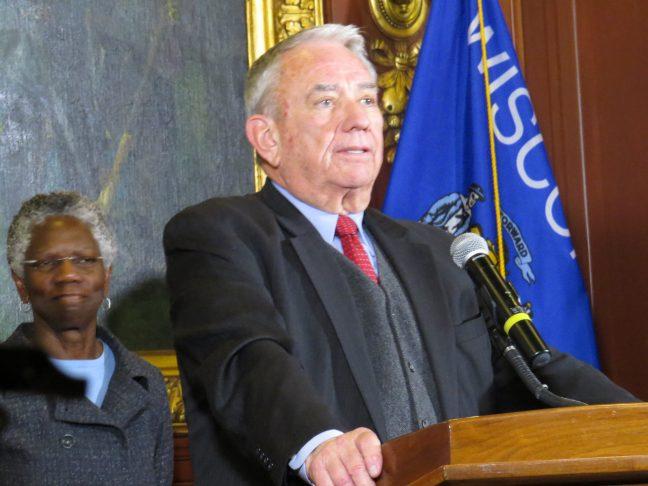The University of Wisconsin’s Tommy G. Thompson Center on Public Leadership allocated a total $1 million in grants for public policy speakers, conferences and faculty research projects, they announced Monday.
According to the center’s website, next year’s topics are digital privacy and “reforming the administrative state.” Thompson Center Director Ryan Owens said the $1 million will come from two grants, each worth $500,000.
The first grant provides funds to send speakers to UW System campuses, as well as hold conferences at different UW System schools, while the second grand will award funds for faculty members to pursue research projects in these areas.
Owens said this year, the center is focusing on policies related to disability access and renewable energy. He said they’re bringing accomplished speakers to the UW System — notably presidential historians Doris Kearns Goodwin and Michael Beschloss, who will speak at UW-Green Bay next month.
The center also holds conferences focusing on these themes throughout the UW System. This year, Owens said there will be three conferences about energy reform and three conferences about accessibility.
According to the Center website, this year’s ongoing research projects using last year’s grant money are varied in scope. One is a biotechnology project about industry-academia collaboration, one is about planning renewable energy systems and three focus on helping disabled people live independently.
“We’ll get applications from faculty across all the systems for grants on [each year’s] topics, and then they’ll conduct research on [their topic],” Owens said. “And then when the research is done, they provide the results to us and we will disseminate that to those who need it, who want it and the like.”
Owens said the purpose of these grants is to fulfill the legacy of former Gov. Tommy Thompson. Owens said he admired Thompson’s ability to bridge barriers when seeking policy solutions.
Owens said the center attempts to recreate that legacy by bringing people together through these conferences and disseminating new ideas.
“[Thompson] was known for collegially bringing people together to try to solve the big problems that face Wisconsin, and that’s what we’re all about here at the center,” Owens said. “We’re trying to pursue that mission and make Tommy’s legacy proud.”


